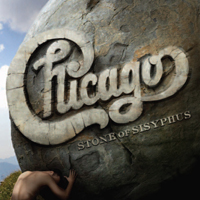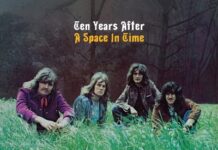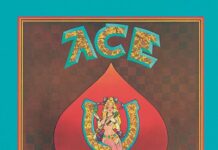There are those ‘forgotten’ albums, lost tracks or even unreleased
releases that make history and sometimes dog a band their entire career. Think
the Beach Boys’Smile, various ‘basement tapes’
of Bob Dylan’s, and the ‘lost’ Chicago studio album, Stone
of Sisyphus.
Reading the included booklet, knowing the history of this American rock institution,
picking apart what they were in the 70s as opposed to what they became in the
80s and early 90s — one comes to understand the turmoil Chicago has been
through. Stone of Sisyphus, recorded in 1993, was an attempted
return-to-form for a band that had been relying on outside songwriters to keep
them afloat. Given a big bolstering go-ahead by their then label Warner Brothers
(they heard the demos and loved the stuff), the band went into the studio with
producer Peter Wolf (not to be confused with the singer for J Geils) to craft
what they all thought was to be a true Chicago album, with songs written by
the band and inflated by the horns and harmonies the band built their career
on.
Unfortunately there were changes afoot at Warner Brothers, and when the band’s
manager delivered the record, it was rejected. The band was so disgusted by
the label’s reaction, not to mention exhausted from the hard work that
went into an album, that when they left Warner Brothers, they kept this 11-song
album under wraps and unreleased. Until now.
The title track starts us off in familiar jaunty Chicago waters, sounding very
much like what the band was all about in the late 80s and early 90s. But “Bigger
then Elvis,” the second number finds Chicago branching out, featuring
a nice slice-of-life lyric and a few guest players including Jerry Scheff on
bass (Chicago bassist Jason Scheff’s dad) plus The Jordinaires, who actually
played with Elvis Presley. We chunk along nicely here, especially with a killer
guitar groove in “Mah-Jong” and solid tempo of “The Pull.”
Where the album cuts loose is near the end, most especially on “Plaid.”
This is the Chicago we have been aching for with tight vocal harmonies, slick
horn and key interplay, and a feisty rock feel. For the first time, I also felt
the drums come alive. “Cry For The Lost,” a light piece reminiscent
of the Doobie Brothers, and the closer, “The Show Must Go On” are
as close as Chicago comes to expressing their feelings about where they were
at in the corporate machine of 1993.
The CD boasts four demos that show off the band’s strengths even more.
I know it’s often all about the horns with Chicago, but sometimes it nice
to hear the band stripped down as they are without the brass. But the real question
remains: Is Stone Of Sisyphus the lost treasure of the Incas?
Is it even the best Chicago album you’re ever going to hear? I don’t
have the answers, but it’s nice to know that by releasing this record,
Chicago will pay off some debts and put to rest the rumors about a ‘lost’
album.
~ Ralph Greco, Jr.




















